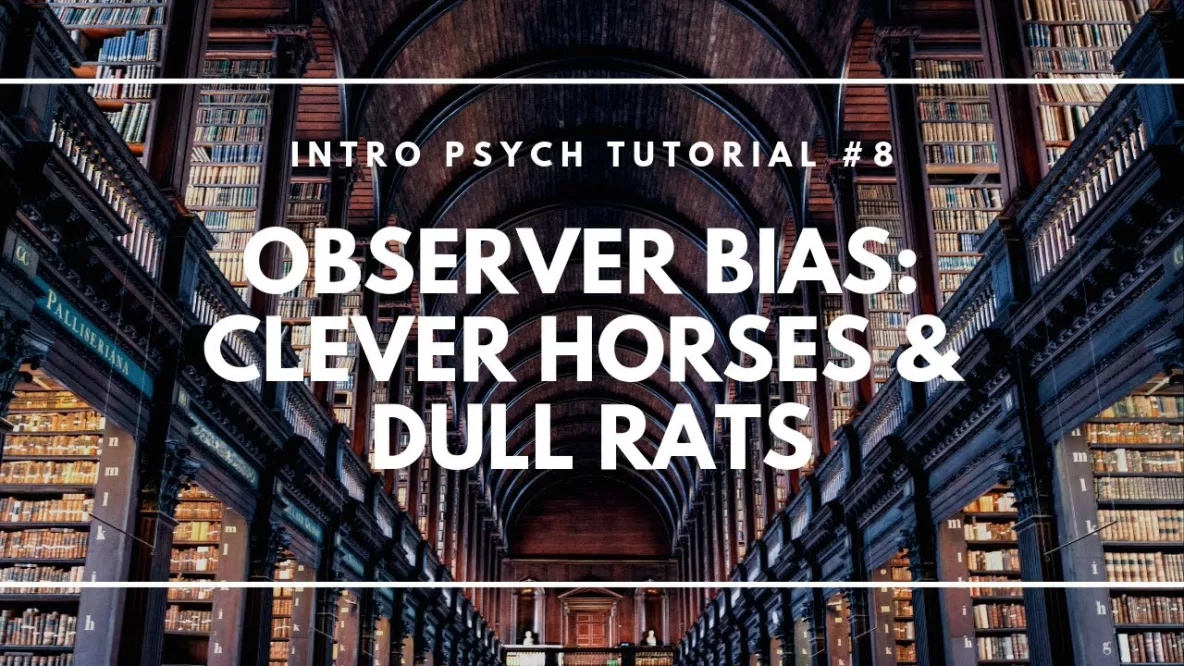In this video, I cover properties, operational definitions, and construct validity. Understanding these concepts is fundamental for determining which conclusions can be drawn from a study and should always be kept in mind when considering interpretations of research. Don’t forget … Read More
Observer Bias: Clever Horses and Dull Rats
In this video, I explain two well-known examples of observer bias: the case of Clever Hans, and Rosenthal and Fode’s experiment with “bright” and “dull” rats. Observer bias (or experimenter expectancy effect) is considered, along with an explanation for how … Read More
Difficulties of Psychological Research
In this video I discuss three difficulties of conducting psychology research: complexity, variability, and reactivity. I also explain demand characteristics, social desirability, and the Hawthorne Effect. Don’t forget to subscribe to the channel to see future videos! Have questions or … Read More
Structuralism and Functionalism
In this video I describe two early approaches to psychology; the structuralism of Wilhelm Wundt and the functionalism of William James. Don’t forget to subscribe to the channel to see future videos! Have questions or topics you’d like to see … Read More
What is Phrenology?
In this video I discuss phrenology, the work of Franz Josef Gall, and how this pseudoscience had a lasting positive impact on psychology. Don’t forget to subscribe to the channel to see future videos! Have questions or topics you’d … Read More
Dualism and Monism (Intro Psych Tutorial #3)
In this video I discuss dualism, Descartes, monism, and Hermann von Helmholtz to consider why we can’t trust our intuitions about the world. Don’t forget to subscribe to the channel to see future videos! Have questions or topics you’d like … Read More
Disposition or Situation?
How do we understand the behavior of other people? Rather than focusing on a person’s traits (or their disposition) as we did in personality psychology, we’ll now include a focus on the situation the person is in. We’ll begin with … Read More
Approach and Avoidance Motivations
Another way of categorizing motivations is to consider them as either approach motivations or avoidance motivations. An approach motivation is a drive to experience a positive outcome, while an avoidance motivation is a drive to not experience a negative outcome. The … Read More
Freud’s Personality Structure
Freud proposed a structural organization of personality with three main components; the id, the ego, and the superego. The id was the raw animal drives of the personality. These included drives for food, sex, and aggression, which were driven by … Read More
Types of Test Designs
In designing an intelligence assessment, I may want to know the level of difficulty that someone is capable of solving. In this case, I would probably look at whether a person is able to solve a particularly difficult puzzle or … Read More






